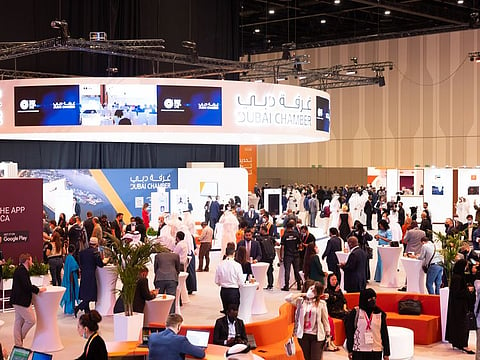AfCFTA holds key to strengthening UAE-Africa trade
Dubai has long played a vital role in linking Africa to the global economy

The new African Continental Free Trade Area (AfCFTA) is not only a symbol of the continent’s business resilience but is rapidly reshaping global as well as intra-Africa trade to deepen the longstanding relationship between Africa and Dubai, top officials told the Global Business Forum (GBF) Africa.
"The United Arab Emirates and Dubai, in particular, have long played a key role in linking Africa to the wider global economy. This interconnectedness has been mutually beneficial, and we wish to continue to deepen those collaborations," Paul Kagame, the President of Rwanda, said during his special address at the Forum on Thursday.
Held under the patronage of His Highness Shaikh Mohammad Bin Rashid Al Maktoum, Vice President and Prime Minister of the UAE and Ruler of Dubai, GBF Africa 2021 – the sixth edition in the series – was organised by Dubai Chamber under the theme ‘Transformation Through Trade’. The two-day event was hosted in partnership with Expo 2020 Dubai.
In a recorded video message, Kagame stressed that while the global economy was slowly getting back on its feet, it would never revert to its former model. "No country or continent has been spared the damaging effects of the COVID-19 pandemic. Africa is no exception,” he said.
Building supply chains resilience
"Some of the changes will be profound and lasting. The crisis in international shipping and transportation is already generating new thinking. Manufacturing and supply chains will need to become more resilient to more local and more technologically advanced," he added.
Kagame said that this new economic paradigm would give his country many opportunities, with the global pandemic occurring alongside technological advancements having opened doors for sectors of the Rwanda economy, as well as for the wider continent of Africa.
President Kagame’s comments came in the wake of the AfCFTA gaining momentum with 41 ratifications from member countries till date. Implemented on January 1, 2021, the agreement is considered the foundation for enhanced cross-continental trade in Africa. Signed by 54 countries, the agreement comprises the reduction of tariff and non-tariff barriers, the simplification of custom procedures, and the elimination of red tape with the aim of creating a single market for goods, persons, and services
‘Potential to transform global economy’
According to Wamkele Mene, the first Secretary General of the AfCFTA, the agreement has the potential to transform the entire global economy in the wake of the pandemic. “We have done very well despite the pandemic as we approach the first anniversary of the AfCFTA. There are very positive signals from the agreement, showing the way forward for Africa to recover from the pandemic,” Mene told the Forum in a virtual address.
“We are big believers in AfCFTA to build resilience across the continent… In my travels throughout Africa, I have seen remarkable progress in countries becoming producers, whether it’s in Senegal, Zimbabwe, or Malawi. This reflects the basis of AfCFTA – which calls for an integrated approach for self-sufficiency in Africa without taking ourselves out from the global supply chain,” he said.
Expected to add $35 billion to intra-Africa trade flows annually, Mene said the implementation of the AfCFTA will integrate markets and break a lot of the barriers to trade. “Today, Africans, African governments and the entire world wants to see change – we are no longer the continent of poverty or the continent of the future, but the continent of today,” he said.
Sign up for the Daily Briefing
Get the latest news and updates straight to your inbox



